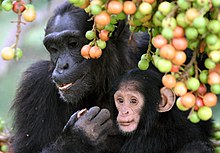 |
| Kwanzaa Kinara Drawing by Nesnad |
Maulana Karenga, Kwanzaa's founder, describes Kawaida as a philosophy that reflects Afrocentric tradition. However, philosophy for philosophy's sake is not what Karenga has been about. Kawaida is therefore a very active philosophy that focuses upon self-reflective and self-corrective practices.
That is why a Day of Assessment (aka "Day of Meditation") has been a culminating part of the Kwanzaa celebration. On this day, three core questions are grappled with: Who am I? Am I really who I say I am? Am I all I ought to be?
This is also a day for concentrating upon the wisdom of The Odu Ifa meditation, which reads as follows: Let us not engage the world hurriedly. Let us not grasp at the rope of wealth impatiently. That which should be treated with mature judgment, let us not deal with in a state of anger. When we arrive at a cool place, let us rest fully. Let us give continuous attention to the future, and let us give deep consideration to the consequences of things. And this because of our (eventual) passing.
Such wisdom can then be nurtured throughout the entire year.
Resources
https://celebrationjoy.com/kwanzaa-odu-ifa-meditation

.jpg)



.jpg)














.jpg)








.png)


